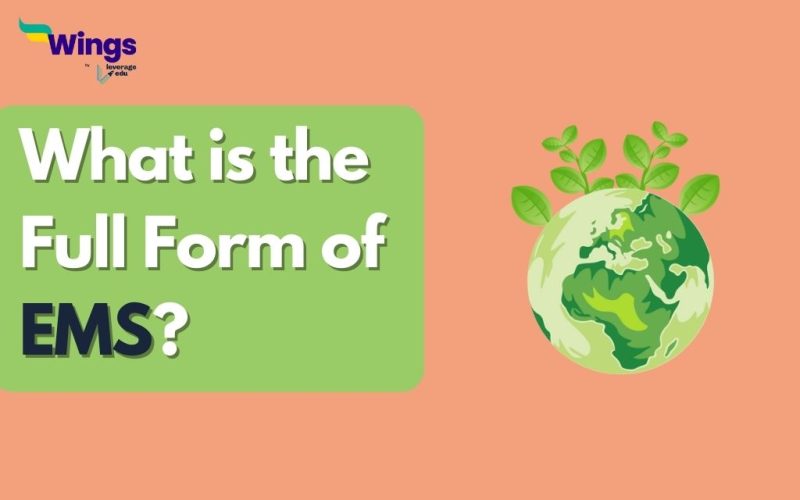The full form of EMS is Environmental Management System. It refers to an array of practices and processes that allow an organisation/business to lower its environmental impacts and improve its operating efficiency. The underlying idea of EMS is that with ongoing review and evaluation, the organisation can identify new opportunities to improve its environmental practices.
However, it is important to note that the EMS does not impose a specific standard of environmental performance that must be met; instead, each organisation customises its EMS to align with its unique objectives and targets. This flexibility allows organisations to address their environmental responsibilities in a manner that suits their specific needs and circumstances.
Also Read: Career in Environmental Management
Basic Elements of EMS
An EMS helps an organisation address its regulatory requirements in a systematic and cost-effective manner. This proactive approach can help reduce the risk of non-compliance and improve health and safety practices for employees and the public. An EMS can also help address non-regulated issues, such as energy conservation, and can promote stronger operational control and employee stewardship.
The basic elements of an EMS include:
- Reviewing the organisation’s environmental goals
- Analysing its environmental impacts and compliance obligations (or legal and other requirements)
- Setting environmental objectives and targets to reduce environmental impacts and conform with compliance obligations
- Establishing programs to meet these objectives and targets
- Monitoring and measuring progress in achieving the objectives
- Ensuring employees’ environmental awareness and competence
- Reviewing the progress of the EMS and achieving improvements
Also Read: Environmental Science Courses
Benefits of EMS
Some of the potential advantages of an Environmental Management System are as follows:
- Improved environmental performance
- Reduced costs
- Sustainable use of resources
- Environmental Conservation
- Increased compliance with national and international environmental policies
- Improved image among regulators, investors, the general public, and lenders
- Increased awareness about environmental responsibilities and challenges among employees
Also Read: Famous Environmental Movements in India
This was all about the EMS Full Form. Visit our Full FormPage to discover more intriguing articles about full forms. You can also get a consolidated list of 300+ full forms here! Get in touch with the experts at Leverage Edu in order to kickstart your study abroadjourney!
 One app for all your study abroad needs
One app for all your study abroad needs













